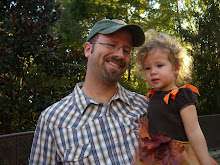Person A: "that Ben he's a good (insert profession here)."Person B: "I agree. Since he (insert verb) my (insert noun) I can't see going to any other (insert profession)."end scene
 Community gardens provide many physical, psychological and social benefits—not to mention fresh food and outdoor exercise. They also provide opportunities for experiential learning which can be especially helpful for children and youth growing up in environments of disadvantage.
Community gardens provide many physical, psychological and social benefits—not to mention fresh food and outdoor exercise. They also provide opportunities for experiential learning which can be especially helpful for children and youth growing up in environments of disadvantage.
In this collaborative project, undergraduates and graduates from CU work with students at a K-12 school for special-needs and at-risk youth in Lafayette, Colorado, to create and maintain a vegetable garden and a straw-bale greenhouse. The goal of the project is to create common ground, literally and figuratively, for the university students and these youth, while including also residents from the surrounding neighborhood, which houses a low-income, minority population, with little public space and few opportunities for growing flowers or vegetables.
Students working on the project develop an understanding of the difficult challenges facing others, who are less privileged. The garden offers an opportunity for cross-cultural sharing of practices and traditions in agriculture and food preparation. It also will provide a space for community and school social events, gatherings and celebrations.
The project prepares design students for professional practice after graduation that engages with the needs of nontraditional clienteles. It implements the University of Colorado’s Vision 2010, which calls for innovative initiatives that bridge disciplines and connect the campus with the community.
Funding for this project was provided by the CU Boulder Outreach Committee; the CU President’s Office for Diversity and Excellence; the Service-Learning Program; and Flatiron Academy. The National Wildlife Federation offered a workshop for participating students and teachers.


1 comment:
while you are looking, you might also want to consider appreciative inquiry (AI) to compliment those phases of experiential learning which focus on identifying the problem. substitute the problem section with AI, and i believe a new journey begins. try it and let me know what you think.
Post a Comment